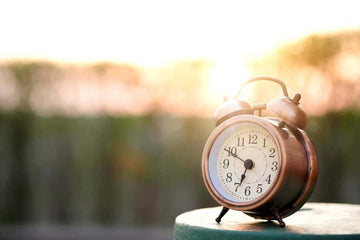Are you struggling with a poor sleep schedule? Issues with your sleep pattern can cause a wide range of health issues and this article will provide the answers on how to get back on track the right way.
Sleep is a crucial element of your life. It is how your body recovers and rejuvenates from the stresses and indeed the challenges that you face through the day. A low level of sleep will begin to adversely impact your health in numerous ways. So, what can you do if you begin to face this issue? Well, there are numerous steps that you can consider here.
However, first, it’s important to understand your sleeping clock, how it works and the natural mechanisms that regulate your level of sleep.
Your sleeping clock explained
The sleeping clock is also known as the circadian rhythm. Essentially, this is the natural internal system in the body that determines when you feel sleepy and when you feel wide awake. This runs throughout the full 24-hours.
It is controlled by an area of the brain that responds to light and typically the natural light that you experience through the day. This is why most individuals will typically feel awake when the sun is shining and ready to fall asleep when it’s night time. The natural darkness triggers us to feel tired and get the rest that we need.
Your circadian rhythm will cause you to feel more awake or more tired throughout the day. Usually, there is a strong desire to sleep between 1pm and 3pm. This is often referred to as the afternoon crash. Most people feel incredibly tired again between 2am and 4am but this will differ depending on the individual. It is possible to be a “morning person” and if that’s the case you are going to feel more awake through the early hours. Other people seem to function best in the evening. It is also possible for your body clock to shift as you age and it can be impacted by a wide range of outside factors too.
During your teenage years, it was common to sleep for longer. Your body became used to this pattern or routine. You would go to bed later and wake up later too. Typically, as long as you follow the natural cues of your body, your circadian rhythm will stay on the right track. However, if you change your schedule, you can disrupt your body clock. If you don’t quickly correct the issue, then the effects can be long-lasting. You might find that you feel most awake through the night.
Why does your sleep schedule shift?
Remember, your circadian rhythm is based on the amount of light that you receive throughout the day or night. So, if you receive less light through the day and more through the night, then this can throw off your sleeping pattern completely. That does include artificial light that you may be exposed to through the night.
Alternatively, it’s possible to alter your sleeping pattern by passing through different time zones as well. This means that you are going to stay up later and ask your body to change based on the environment.
It’s incredibly common for individuals who complete shiftwork to also experience issues here. For instance, you could be working overnight or you might be on the road through the evening. These people find it incredibly difficult to keep to a set sleep schedule because their body clock is running on a completely different pattern.
If your body clock does fall out of alignment then this can be problematic. It can lead to a poor level of sleep and people who do not get enough sleep often struggle to function effectively through the day. Over an extended period, research also suggests that it can cause more dangerous health issues such as:
- Sleep disorders
- Obesity
- Depression
- Bipolar disorder
- Diabetes
Indeed, doctors consider having a poor sleep schedule to be a sleep disorder. According to studies, 1% of adults have an advanced sleep phase disorder. This means that while they go to sleep quite early they also wake up before 5 am.
Younger people tend to have the opposite issue which is known as delayed sleep phase syndrome (DSPS). They can go to bed incredibly late and wake up later too. Some studies suggest that this impacts about 15% of teenagers.
Now, you know the issues that a lack of sleep can cause, let’s explore how to correct the problem the right way.












